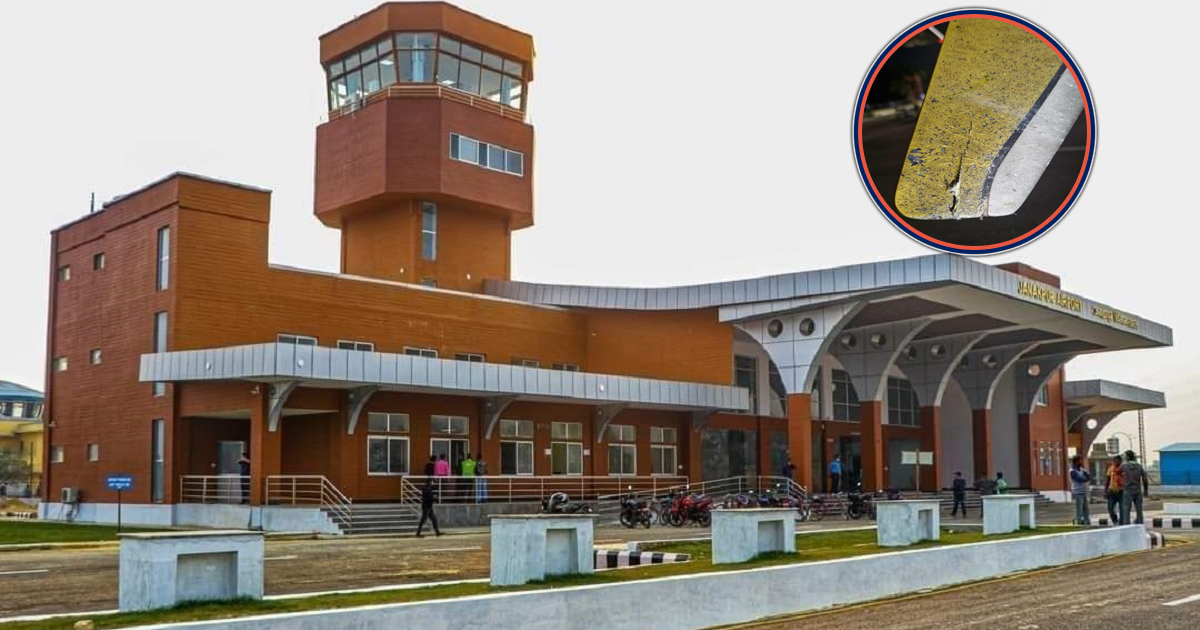Kathmandu: Over the past few weeks, aircraft at various airports across Nepal have increasingly been grounded, not due to mechanical failures, but because of a sharp rise in bird strike incidents.
According to airline operators, these collisions with birds, even minor ones, have forced several planes to be grounded for inspection and repair, leading to growing operational and financial losses.
While bird strikes are a known hazard in aviation globally, the frequency of such incidents has recently spiked at Janakpur Airport, especially during night-time operations. The situation has become so severe that both the safety of passengers and the financial stability of airlines are being impacted.
Recent data from Janakpur Airport highlight the alarming trend:
June 13 – Bird strike during daytime landing
June 26 – Bird strike during morning landing
July 5 – A jackal struck a plane on the runway
July 18 – Bird strike during morning landing
July 23 – Aircraft returned to Kathmandu after a jackal was sighted on the runway
July 30 – Bird strike damaged the propeller on the left engine during landing
August 5 – Night-time bird strike during landing
August 6 – Another bird strike during night landing damaged the left engine’s propeller
Additionally, On Thursday a flight from Kathmandu to Bhadrapur reportedly overshot the runway, once again due to the presence of birds.
Videos showing wild animals like jackals and even leopards within airport premises have gone viral on social media and news outlets, raising serious questions about airport security and environmental management.
According to airline officials, the problem is exacerbated during the rainy season. Tall grasses and unmanaged shrubs near runways attract insects, which in turn lure birds.
Civil Aviation Authority of Nepal (CAAN) has been criticized for neglecting basic vegetation management at airports. Without regular clearing of grass and shrubs, bird and animal activity surges, especially around runways.
These bird strikes not only delay flights but require thorough aircraft inspections, sometimes leading to cancellations. Airlines are forced to bear high maintenance costs, and passengers experience significant disruptions.
“The moment a bird hits an aircraft, we have to carry out in-depth inspections and repairs, which is both time-consuming and expensive,” said a spokesperson from one domestic airline. “With rising maintenance costs and frequent disruptions, our financial burden is only increasing.”
Despite these warnings and repeated incidents, the regulatory authority — CAAN — has failed to implement effective measures to prevent such hazards, say airline operators.
Buddha Air has stated it is ready to coordinate with relevant stakeholders to mitigate bird and animal activity at airports. The airline also called for public awareness campaigns to discourage dumping of decaying food and waste near airports, which attracts birds and scavengers.
“Controlling food waste around airport premises and working jointly with government and local bodies is essential to ensuring air safety,” the airline added.
As flight frequency increases across Nepal, especially during the tourism season, the need for proactive safety measures is more urgent than ever. Airline companies and passengers alike are urging CAAN to act swiftly before these incidents lead to greater disasters.



Comment Here